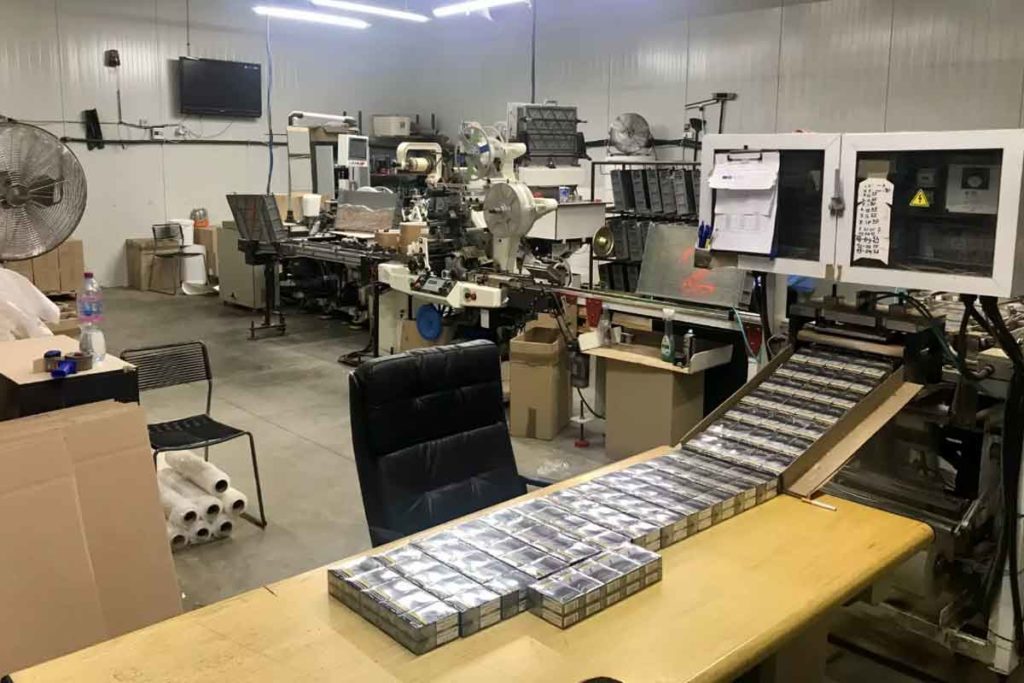Illicit Tobacco Seized in Belgium
- Featured Illicit Trade News This Week
- August 31, 2022
- 0
- 2 minutes read


Authorities seized over 57 million cigarettes and more than 48 tons of cut tobacco during raids in Belgium, reports Europol. The actions prevented the circulation of illegal tobacco products with a total tax value of more than €32 million ($31.98 million).
Police carried out house searches in warehouses and at a private residence in Belgium, some of which were based on intelligence provided by the Lithuanian Criminal Police Bureau on suspicious deliveries to addresses in Belgium.
Law enforcement officers discovered two production lines for cigarettes bearing a variety of well-known brand names. The market value of the seized cigarettes amounted to around €73 million in the United Kingdom, the presumed country of distribution for the majority of the products.
Additionally, law enforcement secured a large number of empty packages, filters, cigarette paper, glue, cardboard and packaging film, as well seven new machines intended for a new production and packaging line.
The searches led to the discovery of several clandestine production sites, as well as warehouses for storage of large quantities of tobacco products. In some locations, sleeping quarters for workers were uncovered on the premises. Along with confiscating significant amounts of raw materials, authorities seized various vehicles and arrested several persons of Lithuanian, Polish, Ukrainian and Jordanian nationality.
The seizures are the latest in a series of actions against the illegal cigarette trade in Belgium. This year alone, authorities uncovered and dismantled five illegal tobacco production sites and 15 storage warehouses in the country. Over the same period, they confiscated more than 274 million cigarettes, 88 tons of cut tobacco, 65 tons of water pipe tobacco and 40 tons of raw tobacco.
The unpaid tax on these products totals more than €139 million, according to Europol.
Belgium has become a major hub for illegal tobacco production due to its proximity to the French and British borders, and the rising excise duty rates in neighboring countries.
